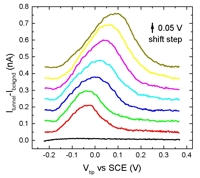
1INFM National Research Center on "nanoStructures and bioSystems at Surfaces" (S3), University of Modena and Reggio Emilia, Via Campi 213A, I-41100 Modena, Italy , and
2Department of Physics, University of Modena and Reggio Emilia, I-41100 Modena, Italy
e-mail: p.facci@unimore.it
